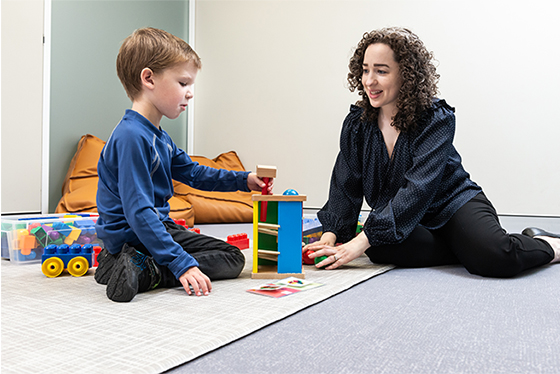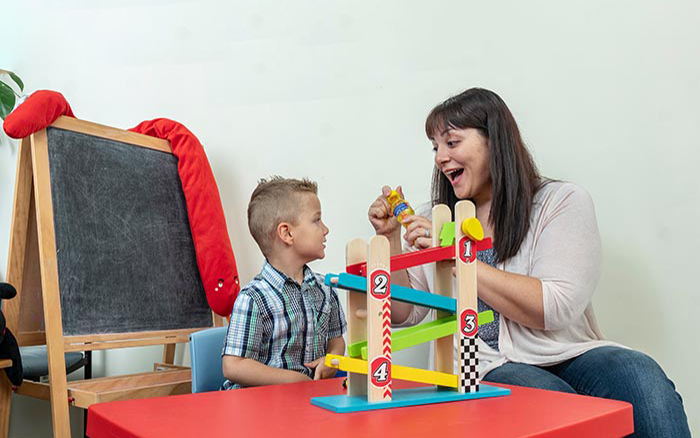Search

At CliniKids we value all feedback, including compliments, suggestions and complaints.

Join us in helping autistic kids live their best lives.
Research
The associations between autistic and communication traits in parents and developmental outcomes in children at familial risk of autism at 6 and 24 months of ageSeveral studies have explored relationships between parent broader autism phenotype and offspring communication, and have reported that autistic-like traits in parents are related to offspring communication difficulties and autism severity. However, past research has focused on studying such associations in childhood and we know very little about them in infancy. With accumulating evidence that interventions administered during infancy may be most effective in reducing ASD symptoms, it is imperative to examine whether relationships between parent autistic-like traits and child communication appear even earlier during this critical period of life.
Research
Mental health difficulties among trans and gender diverse young people with an autism spectrum disorder (ASD): Findings from Trans PathwaysRecent research highlights an overlap of gender diversity and autism spectrum disorders (ASD); however, data on individuals who are trans and also on the autism spectrum are largely from clinical samples and may not be representative of individuals who are trans with ASD in the general population. In addition, there is scant literature on the mental health of these individuals and their experiences in accessing gender-affirming care.
Research
Predictors of Change in Wellbeing and Mental Health of Parents of Autistic Pre-SchoolersParenting is a rewarding experience but is not without its challenges. Parents of Autistic children face additional challenges, and as a result can experience lower levels of wellbeing and more mental health problems (i.e., depression, anxiety, stress). Previous studies have identified concurrent correlates of wellbeing and mental health.
Research
Development of a Model of Care resource for FASD in the justice systemThis article describes the development of a Model of Care resource to support youth involved with the justice system where a neurodevelopmental disability such as Fetal Alcohol Spectrum Disorder is suspected. Service staff within the Youth Justice sector were engaged in an iterative process of resource development over a 9-month period.
Research
Investigating the impact of autistic children's feeding difficulties on caregiversThe aim of this study was to investigate the influence of children's autism characteristics, sensory profiles and feeding difficulties on caregiver-reported impact at mealtimes.
Research
Do parent-reported early indicators predict later developmental language disorder? A Raine Study investigationDevelopmental language disorder (DLD) is one of the most common neurodevelopmental conditions. Due to variable rates of language growth in children under 5 years, the early identification of children with DLD is challenging. Early indicators are often outlined by speech pathology regulatory bodies and other developmental services as evidence to empower caregivers in the early identification of DLD.
Research
The first six months of life: A systematic review of early markers associated with later autismThere is now good evidence that behavioural signs of autism spectrum conditions (autism) emerge over the first two years of life. Identifying clear developmental differences early in life may facilitate earlier identification and intervention that can promote longer-term quality of life. Here we present a systematic review of studies investigating behavioural markers of later autism diagnosis or symptomology taken at 0-6 months.
Research
Neurodevelopmental outcomes in children after prenatal marijuana exposureThe effect of prenatal marijuana exposure on child neurodevelopment remains poorly understood. Prior studies have demonstrated inconsistent results.
